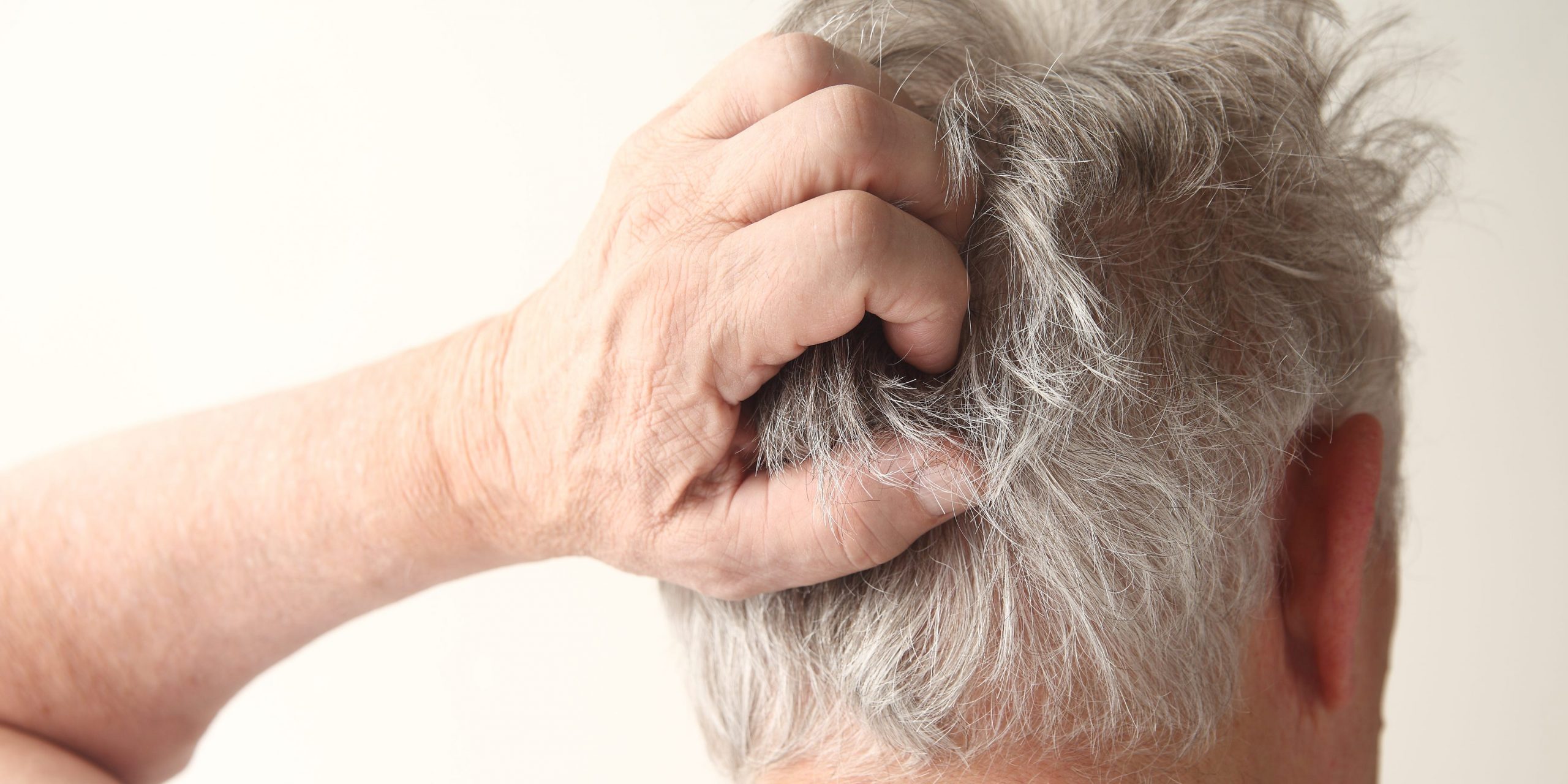
nebari/Getty Images
- Common causes of an itchy scalp include dandruff, head lice, psoriasis, and atopic dermatitis.
- To treat an itchy scalp, see a primary care provider or a dermatologist who can determine the cause.
- Home remedies for itchy scalps include apple cider vinegar, jojoba oil, and tea tree oil.
- Visit Insider's Health Reference library for more advice.
Itchy scalps are common and can happen to anyone, says Annie Gonzalez, MD, a dermatologist with Riverchase Dermatology.
There are many different causes for an itchy scalp, and while it may be irritating and even painful, the good news is an itchy scalp is rarely a cause for concern and is usually easily treated.
1. Dandruff
If small pieces of dry skin flake off your scalp when you're itching, then dandruff might be to blame. Dandruff is the most common cause of an itchy scalp and affects half of the adult population, says Michele Green, MD, a cosmetic dermatologist with her own private practice.
Dandruff can have many causes, including sensitive skin or even a yeast-like fungus.
In addition to an itchy scalp, other symptoms of dandruff include:
- Flakes of skin on the scalp or sometimes the eyebrows
- Bleeding or oozing when you scratch
How to treat it:
To properly treat dandruff, you may need to see a dermatologist or primary doctor who can get to the root of what's causing it, Green says. But you may find some relief with an over-the-counter dandruff shampoo, like Head & Shoulders.
2. Psoriasis
Psoriasis is an autoimmune disorder that causes your immune system to attack healthy skin cells. This can lead to a rash and flaking skin that may occur anywhere on the body, including the scalp, Green says The condition affects about 125 million people worldwide.
Other symptoms of psoriasis include:
- Dry, cracked skin that may itch
- Swelling in the joints
- Red, scaly patches of skin
How to treat it:
Psoriasis should be treated by a medical expert and treatment plans will vary. In general, a doctor might suggest topical treatments, oral medications, or a combination of both.
3. Head lice
Head lice are small insects that feed off blood from the human scalp, and the ensuing scabs can be itchy. Anyone can contract head lice, but it is most common in children between 3 and 12-years-old because they tend to be in closer contact with each other, giving lice the chance to spread easily.
The symptoms of head lice include:
- Extreme itchiness
- A tickling sensation on your head
- Sores on the neck or scalp
- Small white, brown, or dark grey specks in the hair and scalp
How to treat it:
The best way to get rid of lice is to contact your primary care doctor or dermatologist for a prescription treatment, Gonzalez says.
4. Stress Rash
When your nervous system gets overwhelmed by stress, your body releases a compound called histamine - the same compound released in allergic reactions.
This causes inflammation, which can result in itchy hives. These hives, called a stress rash, are most common on the neck, arms, and chest, but can sometimes occur on the scalp, Gonzalez says.
A period of high stress or a stressful life event can cause a stress rash. Symptoms include:
- Itchy raised bumps
- Swelling
- Burning when the rash is touched
How to treat it:
To prevent new hives from cropping up, try over-the-counter antihistamines like Allegra or Claritin, Gonzalez says. Applying a cold compress or a topical steroid such as hydrocortisone and clobetasol can also reduce itchiness, redness, and inflammation.
5. Atopic dermatitis
Atopic dermatitis, a type of eczema, sometimes causes an itchy scalp. It is a chronic skin disorder, and the exact cause is unknown. However a combination of environmental triggers, like allergens or irritants as well as genetics play a role, Gonzalez says.
Other symptoms of atopic dermatitis include:
- Gray-brownish patches on the hands, neck, and wrist
- Small raised bumps that may leak fluid when scratched
- Dry skin
- Red, scaly patches
How to treat it:
The best treatments for atopic dermatitis include ointments and creams, such as topical corticosteroids that reduce redness and swelling during flare-ups, Gonzalez says. Fragrance-free moisturizers can also reduce itching by keeping skin hydrated.
Insider's takeaway
Most people will deal with an Itchy scalp at some point in their lives and there is a wide range of factors that can cause it.
If your itchy scalp lasts longer than a week or if sores begin to develop, contact a primary care doctor or dermatologist who can help you determine the underlying cause and come up with a treatment plan for relief.
